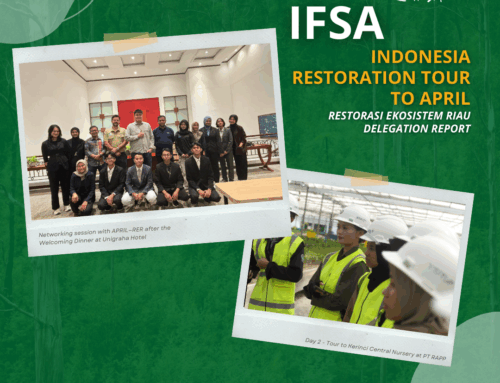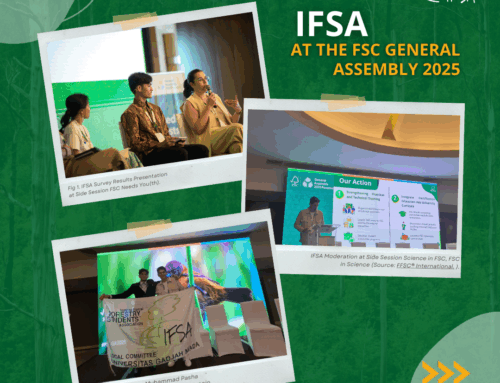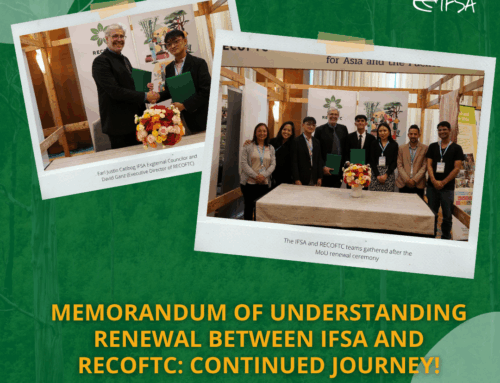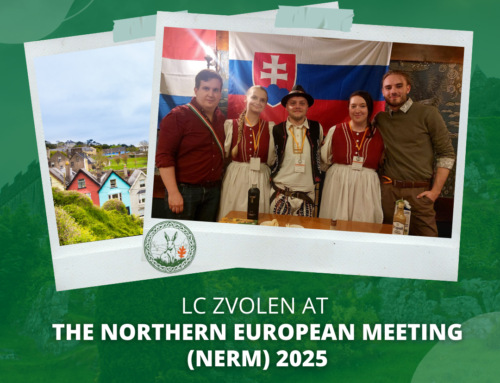IFSA Delegation at the UN Water Conference ‘23
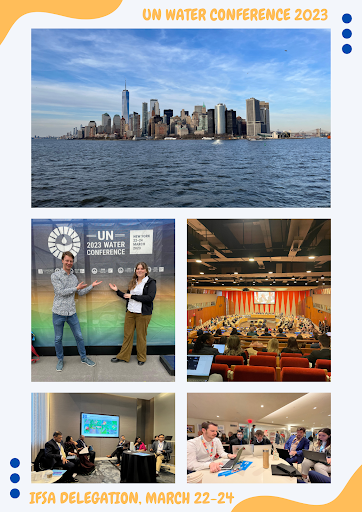
Event Overview
The UN Water Conference 2023 was an international conference organized by the UN aiming to provide a platform to discuss topics around SDG 6, ”Clean Water and Sanitation.” This year’s conference took place from March 22 to March 24 at the UN Headquarters in New York City, co-hosted by the Government of Tajikistan and the Kingdom of the Netherlands.
The UN Water Conference was formed by three main parts:
-
- The UN General Assembly, where delegates from different countries represented the projects, circumstances, and fears around the topic of water. However, this year, the main topic seemed to be dams for hydroelectric power.
- On-site sessions that governments and NGOs organized. These on-site sessions had a strict time schedule, lasted 1.5 hours, and were mainly presentations or speeches of a variety of speakers on a certain topic. Here, the topics were broad and covered topics from youth participation in social aspects to the launch of new initiatives.
- Off-site sessions took place in different locations spread throughout Manhattan. In contrast to the on-site sessions, every organizing team could decide on the duration of the session so that there were sessions from 1 hour to whole-day events. These events covered the broadest diversity of topics, including biodiversity concerns.
The general outcome of the conference was a paper participation organizations could contribute content.
Delegation Experience
The first day started with a session on indigenous knowledge and practices on water resource management organized by different indigenous communities from Asia. The second event was an event presenting an initiative on adaptation in the Caribbean and the Pacific regions. This event showed the role of the Netherlands in the conference, as well as the role as a global player threatened by sea level rise. Due to its colonial history, the Netherlands feel responsible for supporting island states in the Caribbean and the Pacific region by sharing their knowledge about adaptation to sea level rise. Furthermore, the initiative would allow investment money in the region to help adapt to the consequences of climate change. The event had panelists from different states in the Caribbean and Pacific and was attended by the King of the Netherlands.
After lunch at the UN-Headquater, the delegation intended to attend an event that was forest-related and decided to go to the event titled: “From Art to Action: Transforming Desert to the Forest for the Revival of the aral sea region.” However, the event mainly described the current situation of the Aral Sea region without mentioning how the catastrophe of creating a contaminated tiny rest of the lake could happen. Rather, the panelists presented how art is used as a new livelihood documenting the disaster.
As the last session for the day, the session “Adopting the Water-Energy-Food- Environment Nexus for a Water-wise Energy Transition” was attended.
In contrast to the first day, which was used to attend on-site sessions only, the second day was used to discover off-site events. The event “United Nations of River, deltas, and Estuaries: towards an action-based interdisciplinary Network” contained a broad overview of topics from the cultural heritage of rivers over clean rivers that can be used for drinking water to nature conservation. The mixture of topics made the session very interesting, and due to the more informal location than at the UNHQ, the event also provided room to talk to speakers and other people attending the event.
The second event of the day treated the role of big companies in water. However, this event was not led by NGOs criticizing companies for consuming too much water and destroying landscapes but by the companies or associations themselves. Therefore, they presented their sustainability strategy, which was interesting to see, having the impacts in mind others describe.
One of the delegates took part in an off-site event hosted by the European Union Delegation to the United Nations in NY called “Mainstreaming ecological restoration in freshwater ecosystems: insights from law, practice and research around the world.”. Here a diverse group of speakers tackled the work with restoration from different perspectives. For example the importance of research evaluating different ways of working with restoration on policy and administrative levels were highlighted. To be able to get the most out of efforts to increase or sustain biodiversity there is a need for defining words like “restoration” as well as having suitable ways to measure progress. The framework for laws surrounding conservation is quite developed today but isn’t necessarily well adapted to also include restoration. Restoration is not only important for maintaining a high biodiversity but also important to preserve fresh water for drinking or protect from flooding. The speakers also touched on subjects like microplastic pollution in water and its impact on ecosystems, how to work with restoration together with local communities, importance of restoring wetlands and more. While the main focus was kept on Europe different methods of restoration were compared between different areas in the world and the speakers expressed the importance of global cooperation.
Finally, the day was closed with a session in “The Nature Hub”, where topics concerning conservation were presented. The attended session was led by The Nature Conservancy India, presenting their projects on restoring ponds in India.
The last day started with a meeting with Chris Baker from Wetlands International. There, we discussed the event we co-organized and how we would interact later that day. However, before the session actively started, we attended a session of the General Assembly and a session on youth. Delegates of all UN countries are involved in the General Assembly and are allowed to present their concerns about the topic that is currently discussed. During the time we attended, the main topic was building dams for hydroelectricity. The session on youth had high school students from Japan as some of their panelists who presented their projects on clean water.
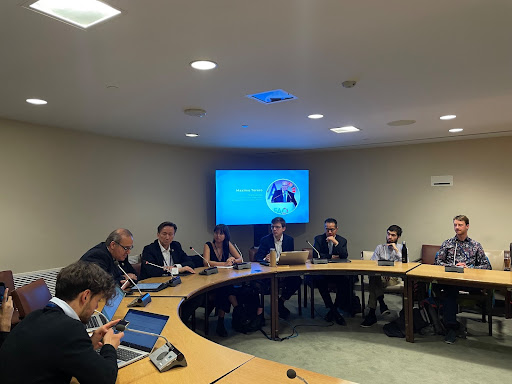
In-person pic: IFSA delegates Philipp Hoehme and Tilde Bergerstam at the side event titled “Youth session – Local action, global impact: the creation of intergenerational partnerships for sustainable water management.”
Collaboration with IAAS and Wetland International
IFSA co-hosted the on-site sessions of the event “A generational challenge in agriculture: Addressing the complexity of the water-food-energy-ecosystem nexus in the MENA region,” organized by IAAS (International Association of Students in Agricultural and Related Sciences). IAAS’ aimed to have intergenerational panelists meaning that the young and old generations worked together in presentations or discussions. Moreover, the panel was created to be interactive, which was highly appreciated by the audience. Our delegation worked with Chris Baker from Wetlands International, who presented the hostage situation of a lake in Morocco. Due to the expansion of agricultural activities using water pumped out of the lake for irrigation, the lake’s water table significantly decreased. Besides the water consumption, the location of the lakes adds to the issue since it is located on calcareous bedrock draining the lake.
During the session, Chris first presented this issue, which a discussion led by Philipp followed to find solutions for the problem. The audience actively participated, which gave Chris some interesting points of view he would like to implement in his future work on the project in Morocco. For us IFSA delegates, the session was a great way to network.
Summary
The conference as a whole presented an opportunity to practice language, network, observe politicians/scientists speak and advocate for their cause, as well as experience how UN bodies carry out their work to achieve the SDGs.
Through the attended events, the delegates learned about different perspectives on how water can play a role in reaching the Sustainable Development Goals, especially Goal 6. These events covered, for example, the importance of preserving water reservoirs and protecting nature around them, the importance of cooperation between countries that share bodies of water or rivers, conflicts around green energy, or nature conservation.
Link here, for the summary report.
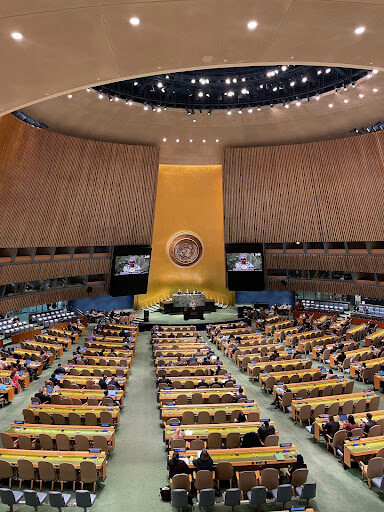
UN headquarter’s main chamber.
Authors: Philipp Hoehme, Tilde Bergerstam, Damya Srivastava
